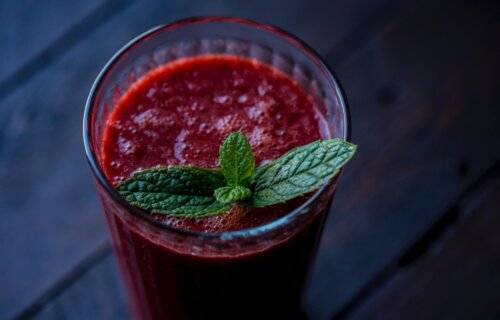EXETER, United Kingdom — Countless people spend untold hours in the gym in pursuit of stronger muscles. For many, they follow these sessions by consuming a whole lot of protein to promote muscle recovery and growth. Now, however, fascinating findings suggest that fitness enthusiasts should add a new item to their post-workout shopping lists — beetroot juice.
Scientists at the University of Exeter report that consuming dietary nitrate, which is the active molecule found in beetroot juice, can significantly increase muscle force while exercising. It’s hardly a secret that dietary nitrate is good for fitness. Studies have found that it both boosts endurance and enhances high-intensity exercise. However, modern science had yet to form an understanding of why this happens, as well as how our bodies convert dietary nitrate into nitric oxide for our cells.
In pursuit of clarity, the team from the University of Exeter and the U.S. National Institutes of Health traced the distribution of ingested nitrate across saliva, blood, muscle, and urine taken from 10 healthy volunteers. Each person also had to perform maximal leg exercises. The team did this to uncover precisely where in the body the dietary nitrate activates, which could give clues regarding the mechanisms at work.
How much does beetroot juice boost muscle performance?
Once an hour had passed after consuming nitrate, the participants had to perform 60 contractions of their quadriceps, the thigh muscle that activates while straightening the knee, at maximum intensity for five minutes while using an exercise machine. This led to an observed significant increase in muscle nitrate levels. While exercising, study authors noted this nitrate boost caused an increase in muscle force equaling seven percent, in comparison to when participants consumed a placebo.
“Our research has already provided a large body of evidence on the performance-enhancing properties of dietary nitrate, commonly found in beetroot juice. Excitingly, this latest study provides the best evidence to date on the mechanisms behind why dietary nitrate improves human muscle performance,” says Exeter’s Andy Jones, Professor of Applied Physiology, in a university release.
Earlier projects noted an increase of nitrate in tissue and body fluid following the ingestion of dietary nitrate. Thanks to this latest study’s tracer, researchers could accurately assess where nitrate levels increase and activate, as well as gain further insight into how nitrate enhances exercise performance.
“This study provides the first direct evidence that muscle nitrate levels are important for exercise performance, presumably by acting as a source of nitric oxide,” concludes Dr. Barbora Piknova, research collaborator and staff scientist in the National Institute of Diabetes and Digestive and Kidney Diseases at the National Institutes of Health. “These results have significant implications not only for the exercise field, but possibly for other medical areas such as those targeting neuromuscular and metabolic diseases related to nitric oxide deficiency.”
The study is published in the journal Acta Physiologica.

